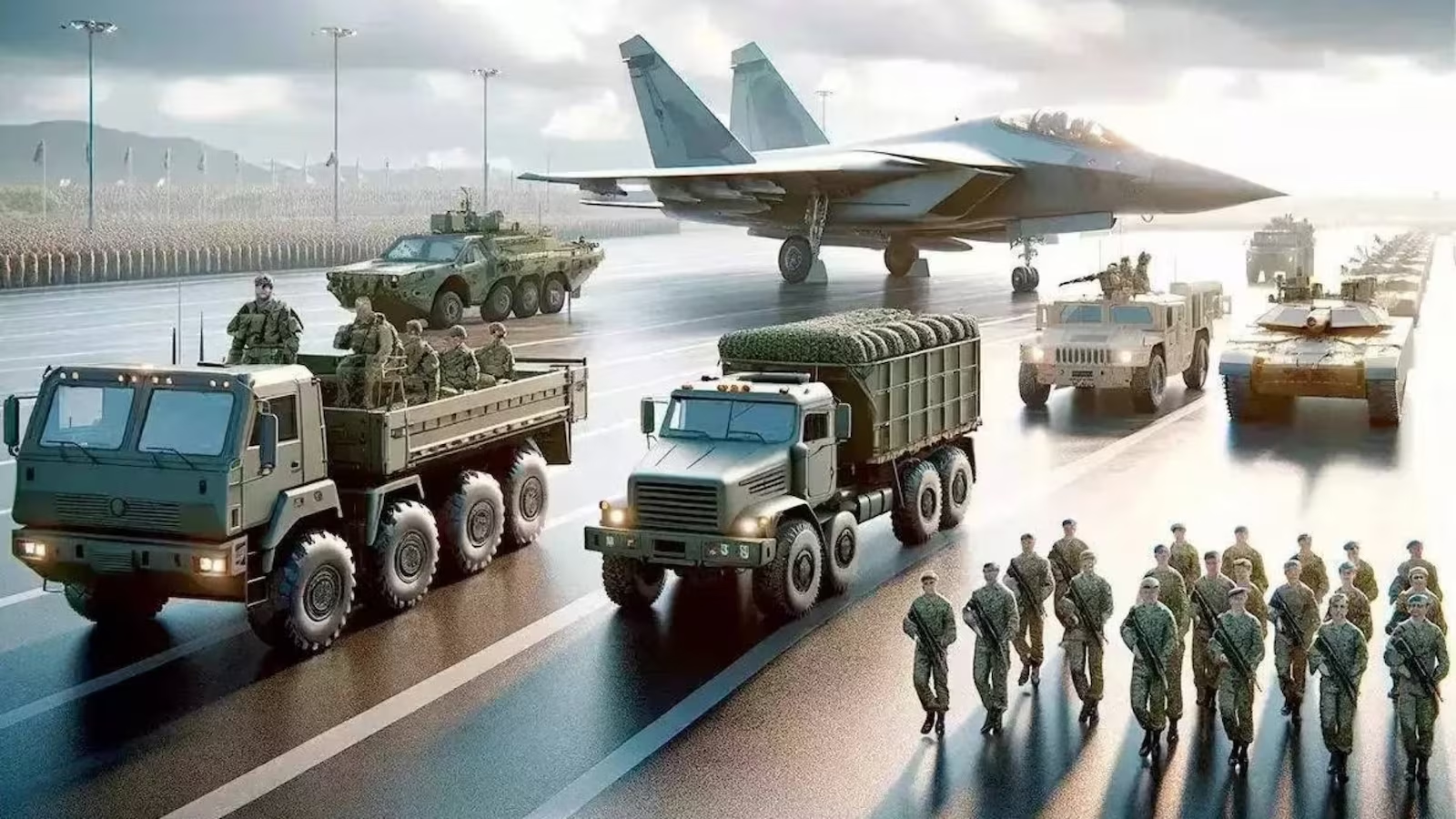
Defence is a rising sector in the country. While the government focuses on the sector continuously, investors get the opportunity to invest in defence mutual funds to earn benefits. Over the past years 2023-24, defence stocks have shown exponential growth. Many investors prefer mutual fund investing instead of direct equity for proper diversification. Even though defence mutual funds are rising, we need to take care that most of the defence companies are still in small and mid cap categories, which makes these funds more volatile.
In this article, we will not only share you the best defence mutual funds, but also share full details about the sector, risk associated with it, and more. If you are interested in India’s defence sector, then this article is very helpful for you.
Table of Contents
What are Defence Mutual Funds?

Defence Mutual Funds are sectoral/thematic funds invest in the defense, aerospace, and related industries. These funds allocate their investments to companies involved in the defense sector. It include manufacturers of weapons, defense equipment, aerospace technology, cybersecurity, and other defense-related services. Fund managers selects a basket of defense-related companie’s stocks for the portfolio and diversify them across various segments within the sector.
Defence sector considered one of the volatile sector as per their past 2 years performance (2023-24). Since they are tied to a specific sector, these funds may experience volatility depending on sector performance, defense budgets, government contracts, and global geopolitical events.
Before dive into the top defence funds, let us introduce the top companies in India behind this sector.
Top Defence Stocks to know before Investing in Defence Mutual Funds

- Hindustan Aeronautics Ltd (HAL)
- Bharat Dynamics Ltd
- Bharat Electronics Ltd
- Sika Interplant Systems Ltd
- Solar Industries India Ltd
- Cyient DLM Ltd
- Zen Technologies Ltd
- Data Patterns (India) Ltd
- Paras Defence and Space Technologies Ltd
- BEML Ltd
Hindustan Aeronautics Limited plays a crucial role in India’s defense sector, designing, developing, manufacturing, and servicing a wide range of aerospace products for the Indian Armed Forces.
Bharat Dynamics Limited is a key player in India’s defense sector, primarily focused on the development and manufacturing of missile systems and allied equipment. The company has evolved significantly over the decades, becoming a cornerstone of India’s defense capabilities, particularly in missile technology.
Bharat Electronics Limited is a leading Indian public sector company engaged in the design, development, and manufacturing of electronic equipment for the defense and civilian markets.
We’ve introduced three stocks details. If you are interested to know more about defence stocks, then you can search it on the internet. As we are focusing on defence related funds, here are the best defence mutual funds:
1. HDFC Defence Fund

HDFC Defence Fund is India’s first active fund in defence sector launched in June 2023. The fund house has discontinued lumpsum and new SIPs in the HDFC Defence Fund, after July 2024. This decision stems from concerns over high valuations and a limited number of investable stocks in the defence sector, which restricts the fund’s capacity for effective capital deployment. According to the Moneycontrol report, initially, lumpsum investments were halted in June 2023, with SIPs capped at ₹10,000 per month to manage inflows and maintain performance standards.
As per investors expectation, HDFC Defence Fund is actively try to beat its benchmark Nifty India Defence Index. However, while new investment has been closed, investors can look at the other defence mutual funds.
| Timeframe | Returns |
|---|---|
| 6 months | 36.60% |
| 1 year | 87.24% |
| Since inception | 118.77% |
2. Aditya Birla Sun Life Nifty India Defence Index Fund

ABSL Nifty India Defence is an open-ended index fund, which aims to replicate the Nifty India Defence Total Return Index. This fund was launched in August 2024. It focuses on long-term capital appreciation by investing at least 95% of its assets in equities related to India’s defence sector, which is experiencing significant growth due to increased government spending and modernization efforts.
The fund allows a minimum investment of ₹500 and has a low expense ratio, which make it accessible for different investors. Here are the returns of Nifty India Defence TRI:
| Timeframe | CAGR |
|---|---|
| 1 year | 116.91% |
| 5 years | 60.46% |
| Since inception | 37.15% |
3. Groww Nifty India Defence ETF FoF

Groww Nifty India Defence ETF FoF is investing primarily in units of the Groww Nifty India Defence ETF. The defence ETF tracks the Nifty India Defence Index. It means the fund’s benchmark is Nifty India Defence TRI. So, whether you are investing through Groww Nifty India Defence ETF FoF or Aditya Birla Sun Life Nifty India Defence Index Fund, the return will be almost the same. This FoF was launched in September 2024. Here are again Nifty India Defence TRI historical returns:
| Timeframe | CAGR |
|---|---|
| 1 year | 116.91% |
| 5 years | 60.46% |
| Since inception | 37.15% |
Groww Nifty India Defence ETF FoF is a best fund for those investors who want to invest in India’s defence sector through a Fund of funds.
Why To Invest in India’s Defence Sector?

1. Increased Production
India’s defence production target is projected to triple and reach 3 lakh crores by FY 2029.1
2. Expanding Pipeline
The defence sector has an estimated pipeline of $138 billion over FY24 – FY32.2
3. Rising Exports
India’s defence exports surged by 78% in the first quarter of FY 2024-25, reaching Rs.6,915 crore.3
4. Increased Budget Allocation
The Interim Budget for FY 2024-25 has allotted an outlay of Rs. 6,21,540.85 crores ($74.8 billion) which is 13.04% of the total budget and 4.72% higher than the Budget for 2023-24.4
5. Supporting Indigenous Production
India’s Defence Production and Export Promotion Policy is driving domestic manufacturing of defence equipment, reducing import dependency, and encouraging local innovation and production.5
Risks associated with Defence Mutual Funds

Investment in Defence Mutual Funds comes with an altogether different set of risks due to their concentrated exposure to the defence sector. Among the key risks is that of sector concentration. Commonly, these funds have heavy exposure in defence-related companies of industries such as aerospace, arms manufacturing, cybersecurity, and the military technology industry.
In concert, such funds tend to do well during periods of high government spending or during geopolitical tensions. However, a downturn in the sector or reduction in defense budgets can seriously hurt the performance of these funds. Unlike diversified mutual funds that spread out the risk across various sectors, the performance of such funds, in case of a defense sector that is not doing well, would remain considerably worse.
Another important risk is high valuation. Companies in the defense industry are usually perceived as having inflated valuations during periods of high demand or global conflict, whereby investors stampede toward the perceived safety or growth prospects of these companies. Lofty valuations, however, can be a two-edged sword in that when stocks are priced well above their intrinsic value, they become more susceptible to corrections. This might cause sharp declines in stock prices, and thus very significant losses for the fund if the defense companies post less-than-expected earnings or demand for defense products weakens.
As you may know, reports said that HDFC mutual fund house has stopped new investments for their HDFC Defence Fund. This is due to high valuations or other reasons.
Not to forget, geopolitical and regulatory risks also have a significant role in the defense sector. Since defense firms are dependent on huge government contracts and top decisions, a little jittery movement of priorities or regulation can cause a resounding impact. The changes in defense spending policy, delays in government contracts, or tight control over the export business will have a direct impact on the revenue and profitability of the companies.
That is it for defence mutual funds. We hope you found this article helpful.
Note that sectoral investing is considered risky. So, talk with a professional before making any investment decisions.
Mutual Fund Journal is always trying to find top mutual funds from the universe of the mutual fund, to help investors find the best funds without too much effort.
Like this article? Get our weekly newsletter
Free newsletter with the best mutual fund stories every week!

Leave a Reply
You must be logged in to post a comment.